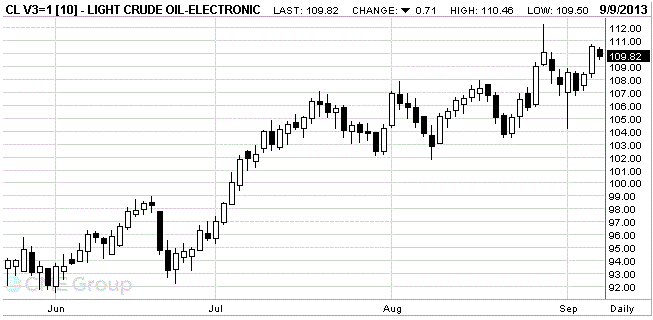- Oil: an overview of the market situation
Market news
Oil: an overview of the market situation
The cost of oil futures declined markedly today , departing from the two-year high against the background of the fact that President Barack Obama is struggling to convince Congress of the need for a military strike on Syria . Negative dynamics of oil prices is also due to profit-taking , which was formed in the previous two sessions .
It should be noted that today the U.S. Congress returns to work after the summer break , which lasted more than a month . Also on this day, the U.S. president is scheduled interviews with five television channels regarding Syria , and on Tuesday Barack Obama will make a televised address to the nation on the same topic. The administration , according to the latest data , while not gained enough votes in the Senate. But the most difficult for the White House situation in the House of Representatives, where , according to media reports , the opponents of the resolution may constitute a majority.
However, the decrease in the price of oil futures contribute on the decline in August, China's oil imports . According to the report , in August, China's oil imports fell relative to July by 18 % (from 6.15 million bbl. / Day to 5.07 million barrels. / Day ), which has raised fears of weakening global demand for energy.
Meanwhile, we note that the data published by the General Administration of Customs of China showed that export growth accelerated in August to 7.2 percent from 5.1 percent in July . Imports, meanwhile, grew at a slower pace - by 7 per cent, which was followed after an increase of 10.9 percent in July , contributing to the growth of the trade surplus to $ 28.6 billion from $ 17.8 billion add that surplus was higher than forecasts of experts at $ 20 billion.
The cost of the October futures on U.S. light crude oil WTI (Light Sweet Crude Oil) fell to $ 109.82 a barrel on the New York Mercantile Exchange.
October futures price for North Sea Brent crude oil mixture fell $ 1.46 to $ 114.25 a barrel on the London exchange ICE Futures Europe.
